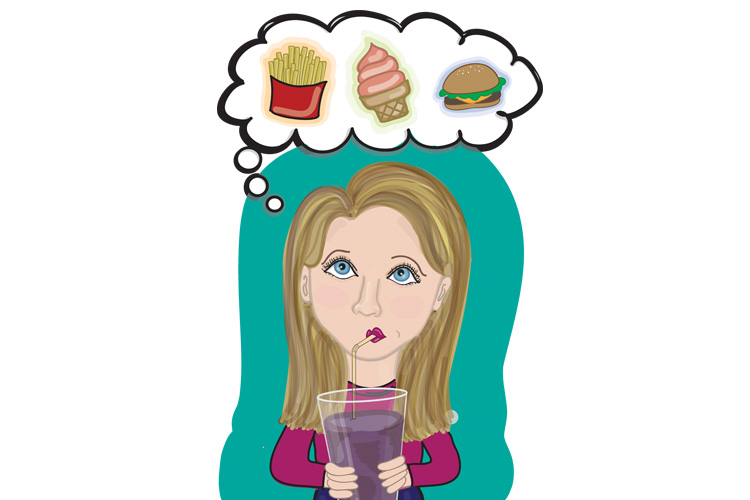Gulping down bottle after bottle of bitter juices, some with cayenne pepper and others made with beets, I plugged my nose attempting to mask the taste of each juice as I forced myself to swallow every last drop. As I emptied each bottle, I stopped to look at the nutrition label, and repeatedly asked myself, “Is this really a healthy diet?”
Over the days following Thanksgiving, I substituted generous helpings of pumpkin pie and warm buttered bread with small bottles of vegetable-based juices in an attempt to “cleanse” my body and discover how this popular, but disputed, diet affected my physical and mental health.
I decided to go on the two-day day-drinker juice cleanse from the Juice Bar, a North Dallas juice chain. This cleanse consists of four pre-made juices and a light dinner of your choice, such as my choice of a kale salad and vegetable tortilla soup. After the cleanse, I gained more insight on the way food, or a lack thereof, can affect different aspects of health.
DAY 1
Waking up with 10 hours of sleep and a full stomach from the day before, I felt prepared to start my two-day cleanse. Victoria Hoff, writer for the ELLE fashion magazine, advises to de-stress and keep exercise moderate while cleansing because otherwise the cleanse may negatively affect your mental state, energy or other aspects of your health. Despite following this advice, I felt groggy and a little light headed about six hours into the cleanse, though I couldn’t distinguish whether this was due to the fact that I barely moved from under a bundle blankets all day or if the cleanse itself didn’t provide me with the energy boost promised by countless blogs I read beforehand.
DAY 2
On the second day of the cleanse I slept for 11 hours, which is not common for an early riser like myself. This shift in my sleeping routine may have been a result of the fatigue and lack of energy I felt throughout the cleanse.
According to Melissa Valliant’s article in the Huffington Post, she explains how juicing prevents people from getting all the nutrients from a fruit’s skin and seeds. Also, she reasons that because a juice cleanse cuts out several major food groups such as fibers, proteins and fats, cleanses prevent people from acquiring all the essential nutrients they require to function. Much like Vallant’s opinion, Cari Nierenberg of Live Science explains how going on a juice cleanse can be harmful and is an extreme form of dieting.
While cleansing, a person burns a lot of their stored energy because these juices don’t provide enough nutrients to replenish their energy stores. A lack of energy can lead to irritability, which I felt increasing during the second day of the cleanse. Also, hunger can trigger irritability; for me, once my stomach is filled I have a more relaxed and content mood. Although full was impossible during the cleanse because the juices curbed my hunger, I never felt fully satisfied and content, leaving me in a perpetual bad mood.
My advice to anyone wanting to try a juice cleanse is to try it out for a short period of time. If you find yourself fatigued and irritable, forget the cleanse and return to your regular food routine. Nierrenberg’s article claims that the body naturally cleanses itself on a regular diet, leaving no need to go on a liquid and vegetable based diet.
– Amelia Brown – Asst. Sports and Health Editor –






